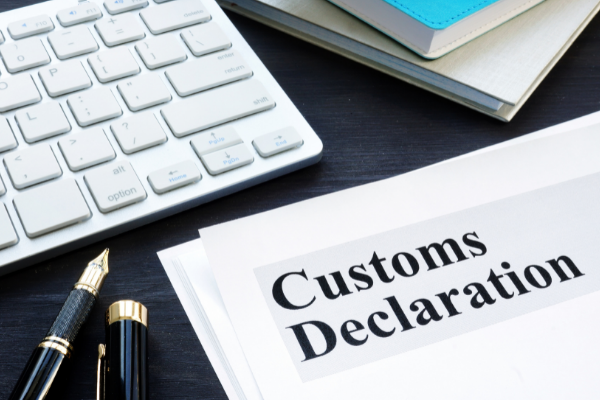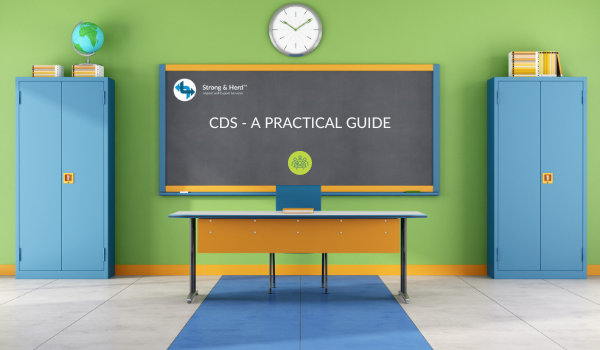BY:
SHARE:

Notice to Exporters 2024/12 advises that all Export Declarations are due to move to the new Customs Declaration Service (CDS) by 4th June 2024.
Strong & Herd has been assisting businesses in UK Customs and Trade Compliance for nearly 30 years. The migration from CHIEF (Customs Handling of Import and Export Freight), to CDS, has been an adjustment for UK international traders, and we have been happy to provide training and support to our clients for compliance with import declarations. This has continued for CDS export compliance.
It is important to be aware that CHIEF and CDS are not like-for-like systems. We have moved from boxes or fields to data elements. There is commonality, but there are also differences.
The Notice to Exporters update provides links to the HMRC guidance on completing an export declaration on CDS. Many businesses use the services of a freight forwarder, Customs broker, or similar entity, to declare their goods to HMRC. It is vital that the trader is aware of who is responsible for the information declared. A forwarder may submit the declaration, but does this mean the forwarder is responsible?
One important change to focus on relates to the Commodity Code and subsequent Document Codes. Ascertaining the correct Commodity Code takes us into the world of Tariff Classification. Reviewing the Tariff notes, utilising the GIR’s (General Interpretative Rules), and knowing the product you are classifying, are vital elements to reaching the correct conclusion and obtaining the correct Commodity Code for your goods.
If the Commodity Code is incorrect, it can impact other areas of compliance. For example, at import, it could result in paying the wrong level of duty.
Declaring an export or import to CDS will require reviewing the Commodity Code to determine whether any Document Codes apply to the goods.
Export compliance can mean the consideration of Export Control and the potential that goods can be controlled for Military or Dual-Use. It’s essential to understand what would make a product controlled under these criteria. The document codes require either the exporter to confirm that control does apply if the goods are Military or Dual-Use, which would require an export licence, declared to HMRC, or to verify that the goods do not require an export licence, as Military and Dual-Use controls do not apply.
Confirmation that a control does not apply is a necessary requirement. Suppose the exporter doesn’t make a positive statement, ‘No License Required,’ and doesn’t declare the correct Document Code which confirms that a license isn’t needed. In this case, it potentially leaves their export instruction open to interpretation, meaning that the entity completing the declaration will need to check with the exporter, which could delay the shipment of the goods.
LIC99, the CHIEF code that confirms a license has not been declared, is not part of a CDS declaration. LIC99 or the Exporter’s License Number would be declared in Box 44 of a CHIEF declaration. For CDS, Data Elements 2/3 is where the applicable Document Code (and license number, if required) are declared.
The migration of exports from CHIEF to CDS emphasises the importance of Customs and Trade Compliance. The exporter must ensure that the Commodity Code is correct to be able to ascertain if there are Document Codes applicable to their goods and to subsequently confirm which code applies, if applicable, to obtain the appropriate export approval.
Military and Dual- Use Controls and Embargoes and Sanctions are vital areas of trade compliance, adding more responsibility to the trader. The exporter must be aware of all the information required for the consignment to be declared to HMRC and check whether the declaration matches their instruction.
If you are interested in exploring this topic further, you might find it worthwhile to consider the training courses and live clinics offered by Strong & Herd LLP:
OneCall™ Email assistance as and when required; A one-call solution for all your import, export and customs enquiries. Export help. Import help. Customs help.
Stay informed about customs and international trade matters by subscribing to our OneCall™ service. This comprehensive offering includes a dedicated email helpline for support, timely practical updates direct to your inbox (Did You Know?), monthly UK Customs & Trade Briefings and access to an interactive members' area with an exclusive community for our subscribers.
International Trade Updates & Spotlight Newsletter
Subscribe to our free information emails covering international trade topics...











